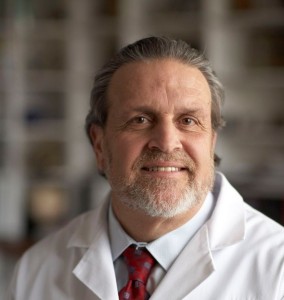Big data is poised to change the healthcare ecosystem and that creates opportunities for forward-looking medical laboratories
First-mover academic center, Mount Sinai Medical Center (MSMC), is taking steps to incorporate “big data” into the daily patient-care setting. For the medical laboratory industry, this is a signal event because a major component of healthcare big data will be patient genetic and molecular information.
Included on MSMC’s big data team are its genetics laboratory experts. These are high-profile “data scientists” who help doctors make personalized predictions about their patients. This project shows how integrated healthcare informatics—including clinical laboratory test data—will be a key attribute of healthcare moving forward.
Hospitals Are Investing to Expand Informatics Capabilities
The healthcare industry has lagged behind sectors like retail and banking in the use of big data, according to a report by McKinsey & Company. However, faced with new performance-based reimbursement models in healthcare, stakeholders are moving fast to catch up.
“With… emerging shifts in the reimbursement landscape, healthcare stakeholders have an incentive to compile and exchange big data more readily,” the report authors wrote.
For its part, Mount Sinai is betting on big data to enable its success in the new era of value-driven healthcare, reported a story in MIT Technology Review. As part of its big data strategy, it is adding a new computer cluster to its existing $3 million supercomputer.
Mount Sinai Brings in High-profile Facebook Data Scientist
Leading MSMC’s new computer design project is 30-year old Jeff Hammerbacher, Ph.D.. This Harvard University graduate was Facebook’s [NASDAQ: FB] first data scientist. He was number two on Tim O’Reilly’s list of the seven most powerful data scientists, according to a ranking published at forbes.com.
Hammerbacher joined MSMC in 2012. He brought with him sophisticated techniques used at Facebook to target online advertisements. He is now applying those techniques to big healthcare data.
The scientists will apply these solutions in areas such as genotyping, gene expression and organ health, particularly for medical research and discovery, according to a press release published at finance.yahoo.com. The new risk models are based on genomics, medical laboratory tests, billing records, and demographics. The aim is to enable a clinician to make up-to-date predictions about a patient.
Informatics Helps to Curb Costs at First-mover Health Systems
Leveraging healthcare big data will be part of the solution to controlling spiraling healthcare costs, stated the authors of a white paper published at cognizant.com. As part of that effort, the Centers for Medicare and Medicaid Services (CMS) is sponsoring a pilot to test the viability of economic ideas of the accountable care organization (ACO) concept. MSMC is participating in that experiment. Along with some 250 other providers, it has agreed to track patients more closely and leverage that data for better patient outcomes.
Under the Affordable Care Act, readmissions can mean steep penalties for hospitals. As part of its tracking strategy, MSMC is using a computer model built on hospital claims data. It incorporates such factors as disease, past hospital visits, and race. This data will help physicans predict which patients stand the highest chance of readmission. Caregivers can then identify and contact chronically-ill people who need extra follow up. Such strategies have allowed MSMC to cut readmissions by half. The hospital is now using the risk score throughout the facility.

One of the leaders of the new “big data” initiative at Mount Sinai Medical Center in New York City is Dennis S. Charney, M.D., who is Dean of the Mount Sinai School of Medicine and Executive Vice President for Academic Affairs. He said that this program has the potential to “reshape the landscape of our field.” (Photo copyright by Mount Sinai School of Medicine.)
Oakland, California-based Kaiser Permanente is also on the front lines of integrated healthcare informatics. This managed-care organization has fully implemented the new Kaiser Permanente HealthConnect® computer system, McKinsey reported. The objective is to ensure data exchange across all of Kaiser’s medical facilities and promote the use of electronic health records.
Kaiser’s integrated system has improved outcomes in cardiovascular disease, according to McKinsey. It has also achieved an estimated $1 billion in savings from reduced office visits and clinical laboratory tests.
Big Data Could Reshape the Healthcare Landscape and Decrease Costs
Big data initiatives, such as those launched at MSMC and Kaiser, have the potential to transform health care, the McKinsey authors wrote. “If these early successes were scaled up to create system-wide impact, we estimate that the pathways could account for $300 billion to $450 billion in reduced healthcare spending, or 12% to 17% of the $2.6 trillion baseline in U.S. healthcare costs,” they observed.
“We are at the cutting edge of disease prevention and treatment,” Dennis S. Charney, M.D., Dean of the Mount Sinai School of Medicine and Executive Vice President for Academic Affairs, commented in the MSMC press release. “[T]he work that we will do together will reshape the landscape of our field,” he declared.
For pathologists and clinical laboratory scientists, the need to bring in talent from Facebook with experience at working with big data is notable. It shows how quickly skills from outside the traditional healthcare system are needed to harness new technologies and apply them to clinical care.
—Pamela Scherer McLeod
Related Information:
Mount Sinai hires Facebook whiz to crunch big data – FierceHealthIT



